Scania marks historic double milestone
Scania marks historic double milestone
Scania Southern Africa recently marked a historic double milestone: the grand opening of its cutting-edge assembly plant in Aeroton, Johannesburg, and the celebration of 30 years of operations in the region. COLIN WINDELL reports that the event underscored the Swedish automotive giant’s deepening commitment to Africa’s sustainable transport future.
“We are not just opening a facility – we are honouring three decades of trust, innovation, and shared ambition,” said Erik Bergvall, managing director of Scania Southern Africa. The timing, he noted, was symbolic, as February 2025 not only marked a new chapter, but also commemorated Scania’s return to South Africa in 1995, a year after the nation’s democratic dawn.
Since this re-entry into the South African market – following a decade-long absence due to apartheid-related sanctions – Scania has been a steadfast partner in the region’s transport and logistics industry. Over the years, it has grown into a trusted brand, known for its commitment to innovation, sustainability, and efficiency in commercial vehicle solutions.
The 30-year milestone underscores Scania’s long-standing commitment to South Africa. Beyond selling vehicles, the company has worked to foster meaningful partnerships, invest in local talent, and drive economic growth.
“Scania’s presence in South Africa is about more than just business – it’s about partnerships, investment, and trust,” said Bergvall.
New era: Aeroton assembly plant
The inauguration of the new assembly plant marks a pivotal moment in Scania’s operations in Southern Africa. The facility is a testament to the company’s confidence in the South African market and its dedication to supporting economic development, job creation, and sustainability. This investment will allow Scania to better serve its customers with locally assembled, high-quality products, ensuring quicker delivery times and improved support services.
The plant’s increased capacity and improved efficiencies align with the growing demand for Scania’s sustainable transport solutions. With an enhanced infrastructure, the company is well-positioned to meet customer needs across the region with agility and precision.
“This is not just a facility upgrade; it’s a transformation in the way we operate,” said Christian Håkansson, head of production at Scania Southern Africa. “This expansion brings with it greater employment opportunities, skills development initiatives, and a stronger contribution to South Africa’s economic landscape.”
The journey has not been without its twists. As Deon Flusk, a 28-year Scania veteran, recounted: “In 1995, we were rebuilding from scratch; sanctions had forced Scania out a decade prior. Coming back meant proving ourselves anew.”
From humble beginnings in Johannesburg’s Elandsfontein district to today’s R450-million Aeroton complex, Scania’s story mirrors South Africa’s own industrial evolution.
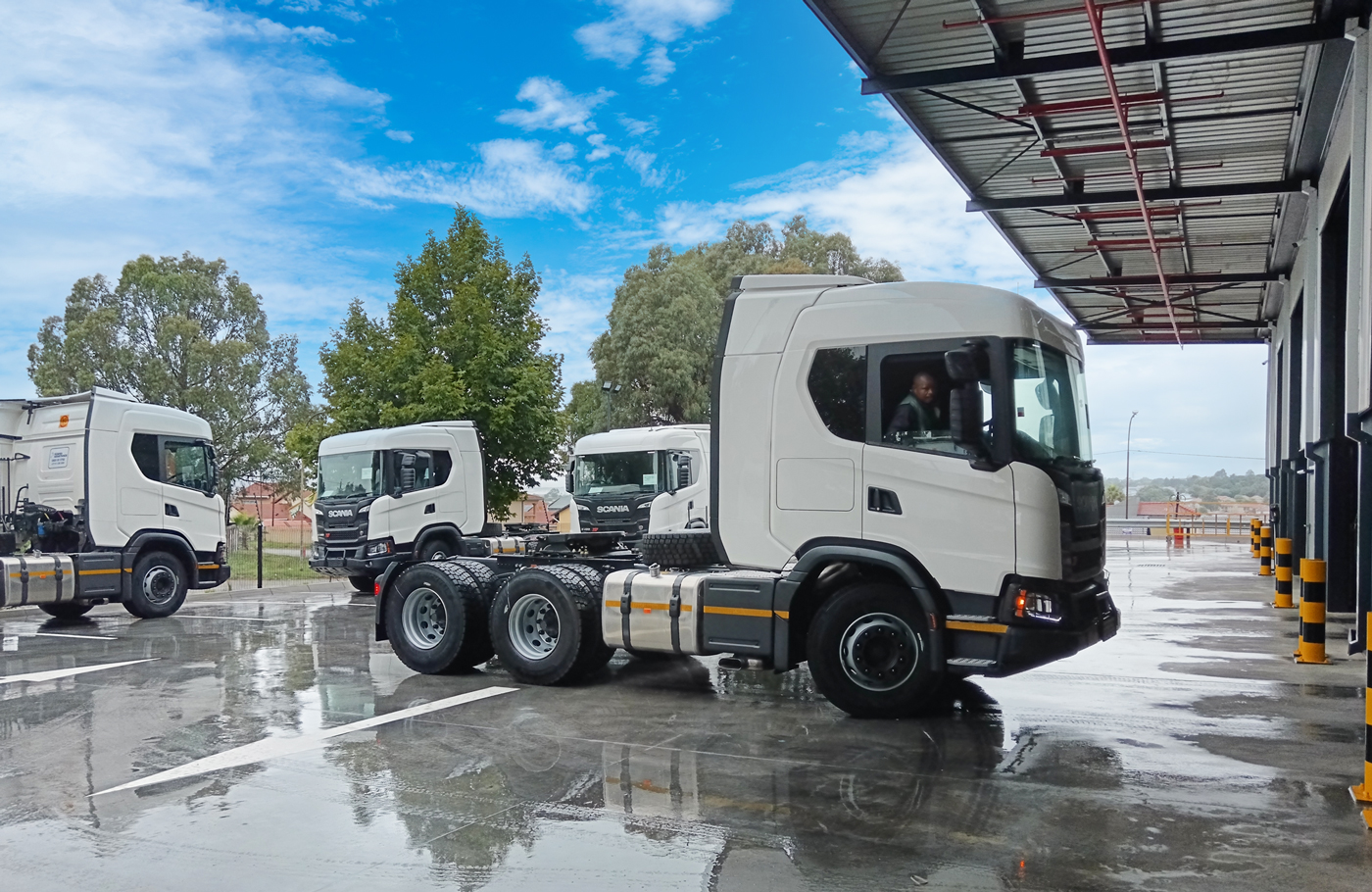
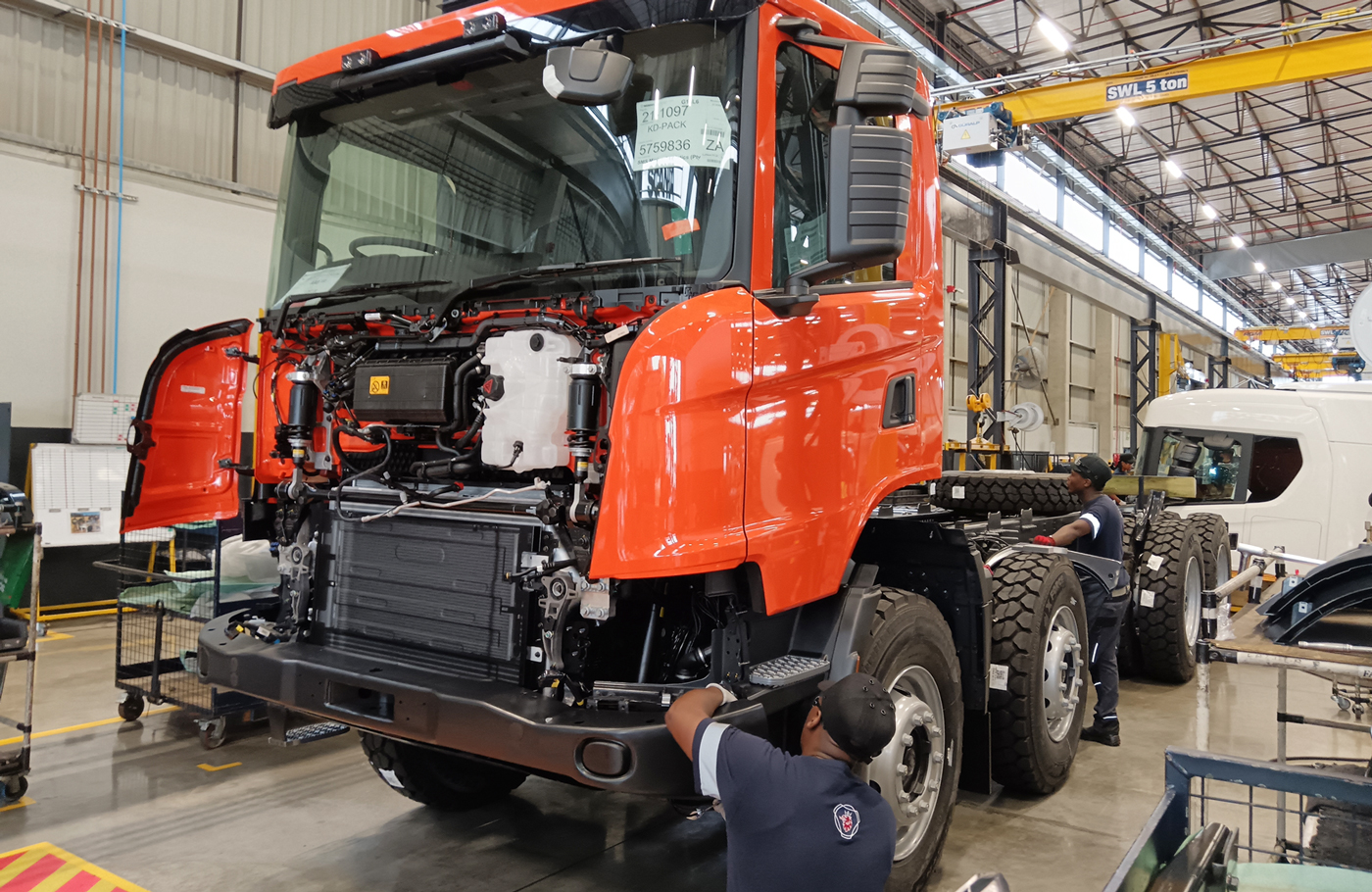
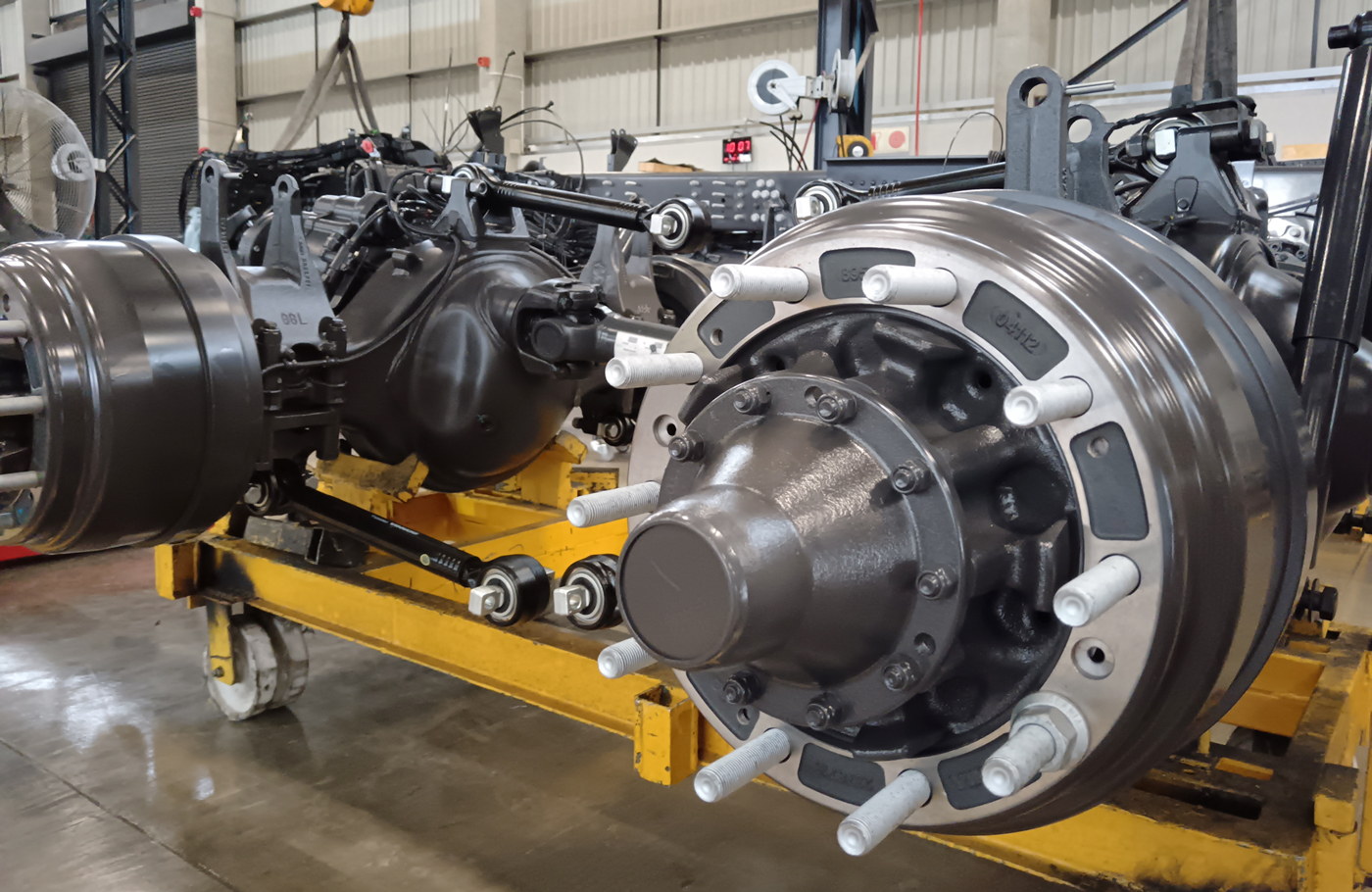
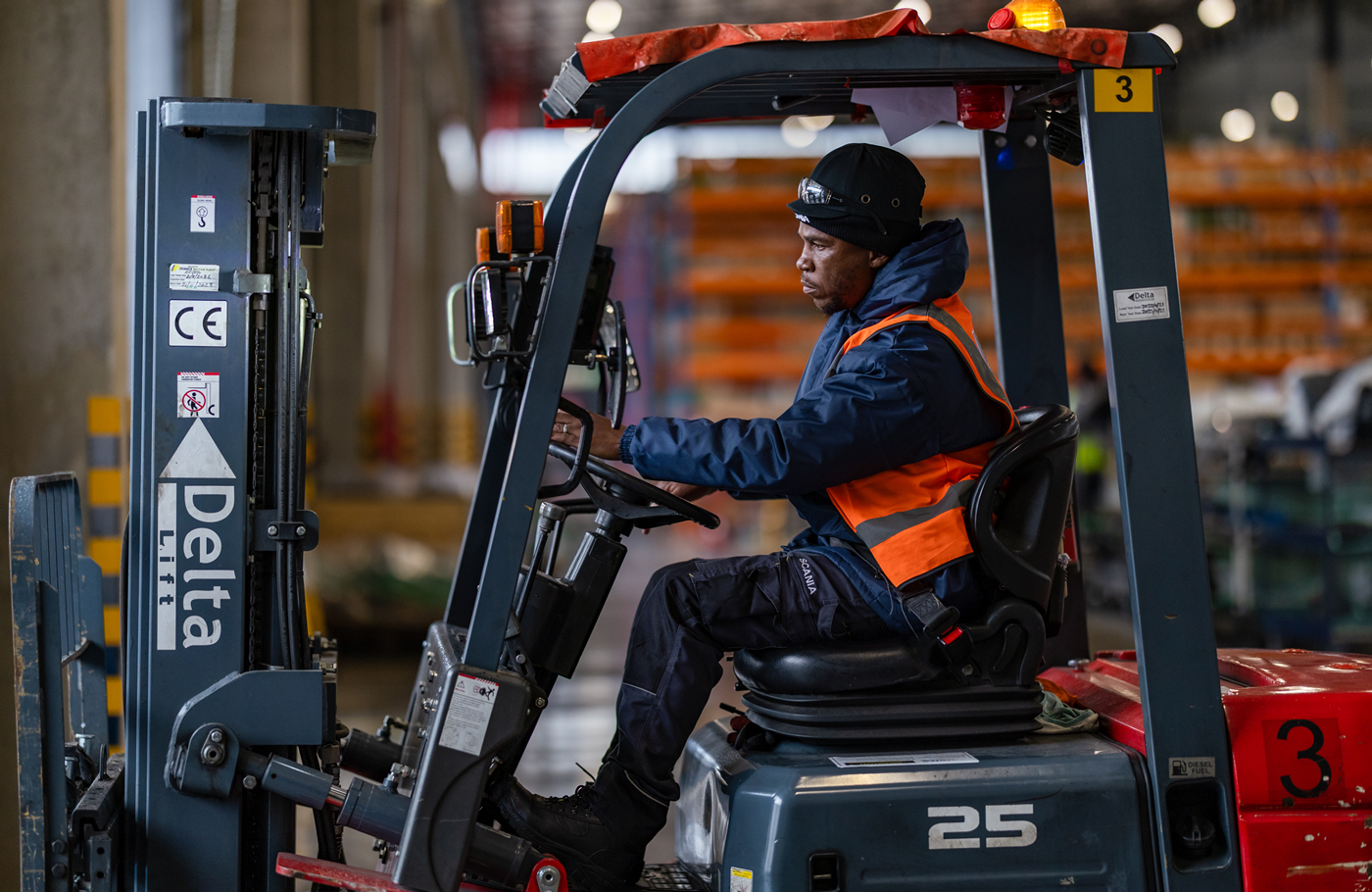
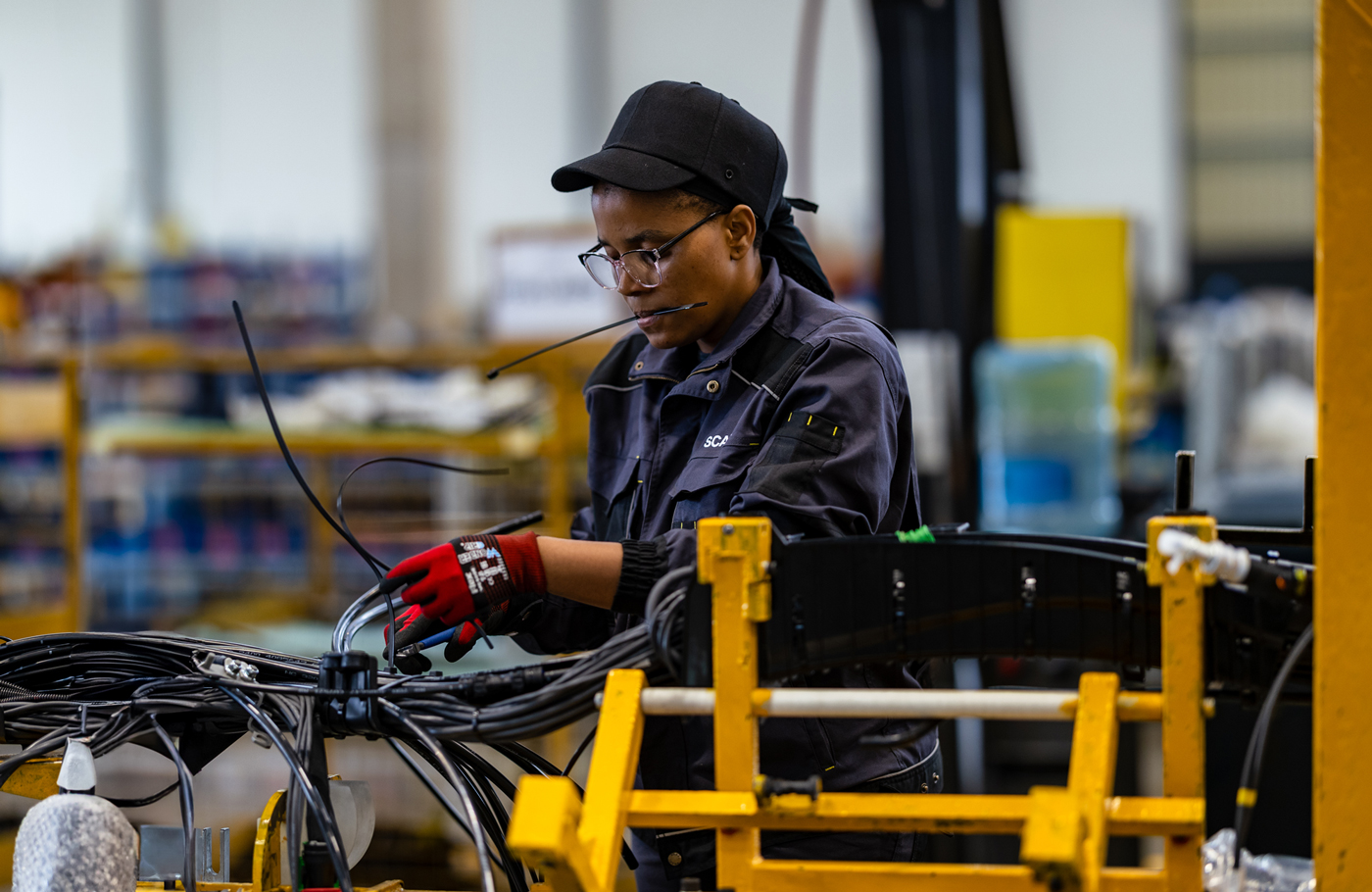
By the numbers: a 30-year impact
“This is not about playing with big Lego,” Flusk quipped, referencing his early days as a tradesman. “Though the thrill of creation remains, it’s about structured innovation.”
The 15,000-m² facility, adjacent to Scania’s distribution hub, slashes CO₂ emissions through optimised logistics and aims to boost recycling beyond 98% by 2026. Strategically located next to Scania’s core distribution and storage centre, the new plant enhances integration within the supply chain. Its proximity ensures improved turnaround times, streamlined logistics, and an overall enhanced customer experience. “This facility symbolises our global commitment to strengthening our presence in key regions,” said Bergvall. “Investments like these reflect our belief in Africa’s potential for sustainable and innovative transport solutions.”
Sustainability at the core
Sustainability is central to Scania’s global mission to drive the shift towards a cleaner, more efficient transport system. The new facility embodies this commitment by integrating eco-friendly practices and minimising environmental impact.
Currently, 98% of all waste generated at the plant is recycled, a figure the company aims to improve further through innovative packaging technologies developed in collaboration with teams in Brazil and Sweden. By consolidating warehouse and assembly operations, Scania is also reducing its carbon footprint in the region.
“This facility represents Scania’s leadership in sustainable transport solutions,” added Håkansson. “We are building a future where transport is smarter, cleaner, and more efficient – benefitting businesses, communities, and the planet. We are not waiting for regulations. Our customers demand cleaner solutions now.” This environmental rigour aligns with Scania’s global shift towards sustainable transport systems. Southern Africa’s mining and logistics sectors, increasingly pressured to decarbonise, will benefit from locally-built biogas and hybrid trucks rolling off the new lines.

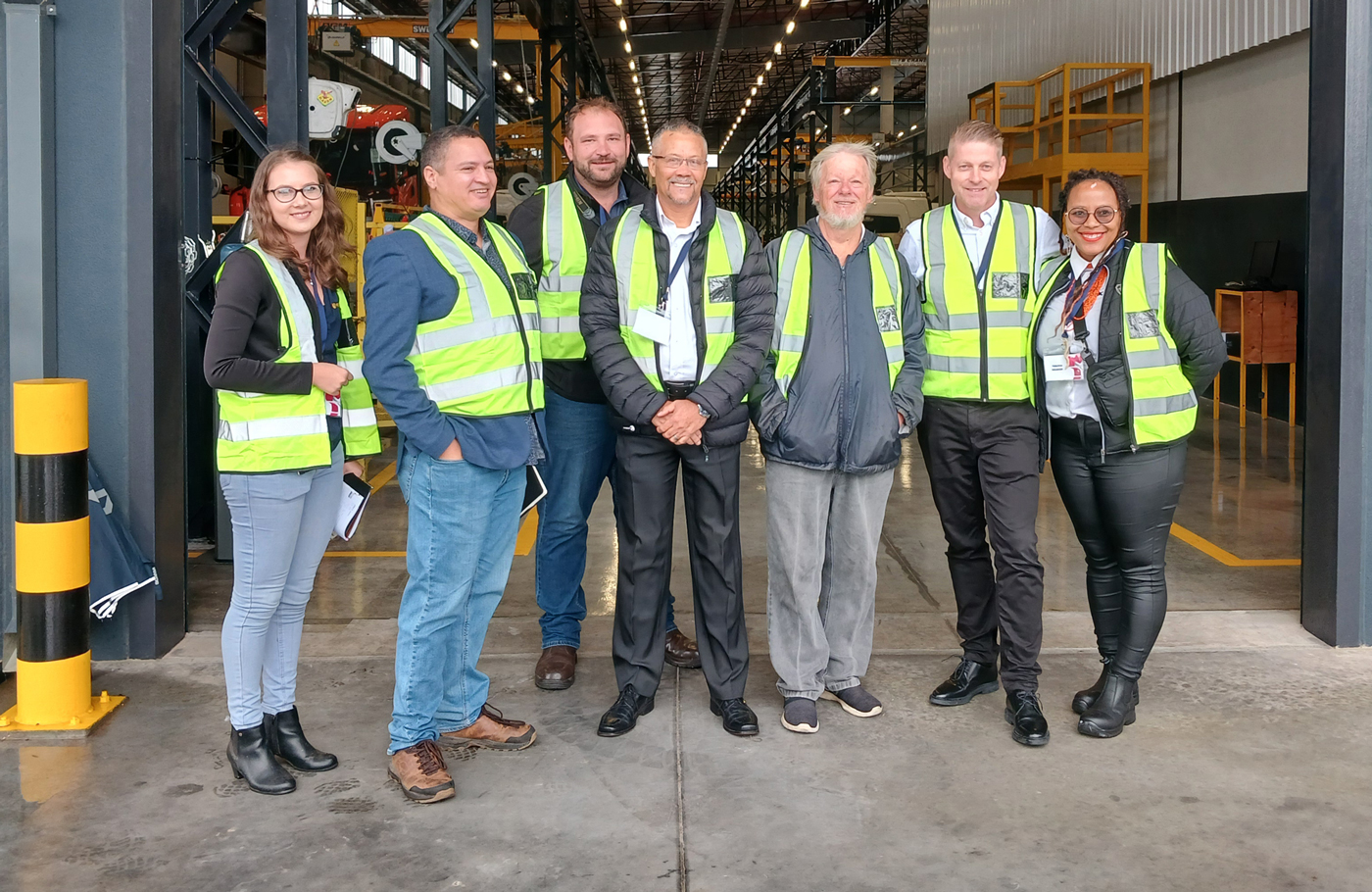
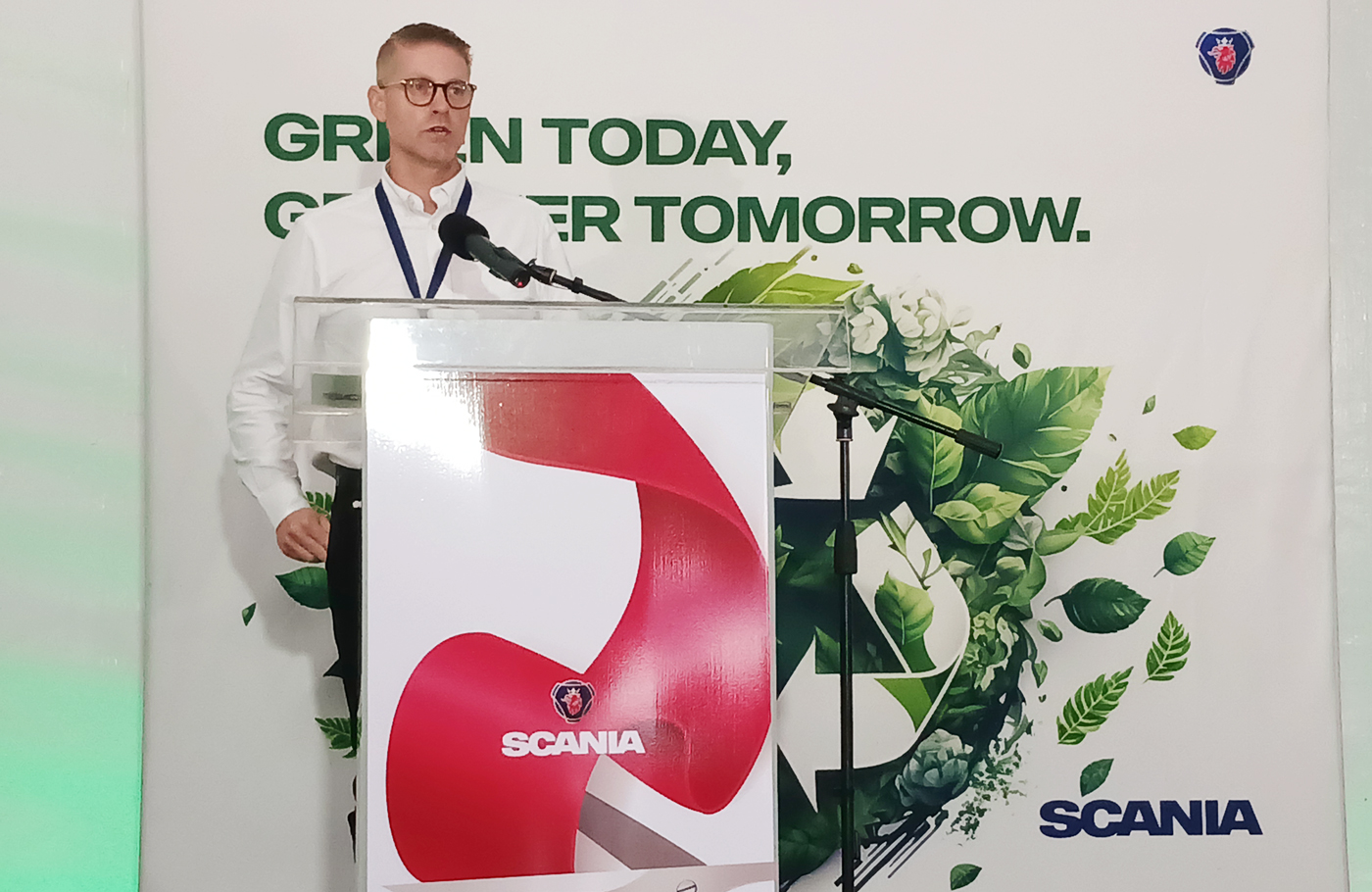
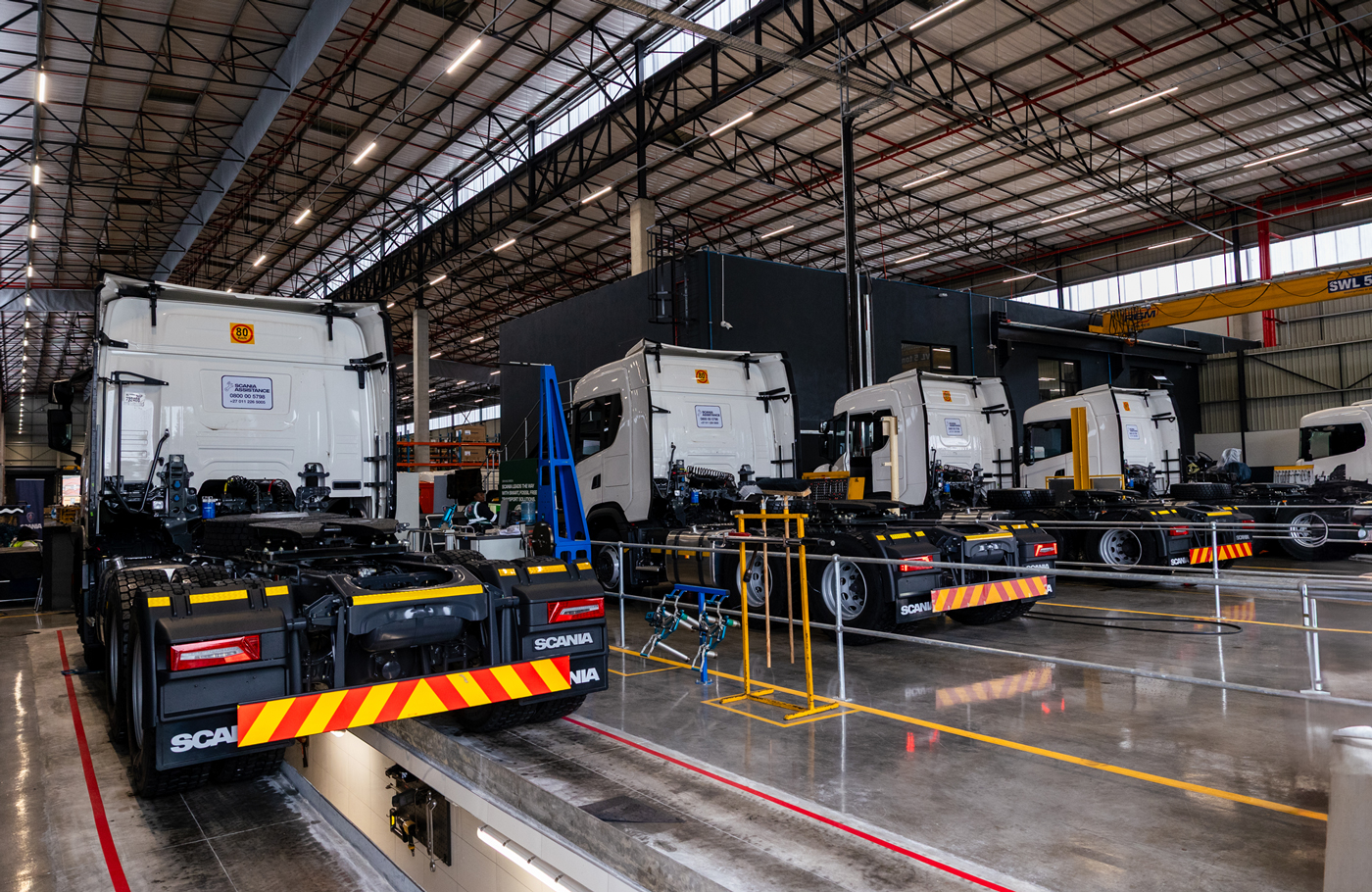
Collective achievement
The success of the project would not have been possible without the dedication and hard work of Scania’s employees. The team’s passion and commitment have played an instrumental role in bringing the facility to life, ensuring it meets the highest standards of excellence. “To our Scania team: your dedication has made this achievement possible. To our customers and partners: our trust and collaboration drive us to push boundaries and continuously improve,” said Bergvall. “We are not just opening a new assembly plant; we are embarking on a new chapter in Scania Southern Africa’s journey.”
With a capacity to assemble 3,200 units per year – including both trucks and buses – the new plant is designed to meet South Africa’s specific market requirements. This means the ability to assemble a wide range of truck models on a single assembly line, where just-in-time management ensures the correct parts arrive exactly when needed. While some 50 different models are processed on the line, the 654 G460 tops the production charts as demand for this unit increases.
Håkansson confirmed that items such as tyres, chevrons, fifth wheels, and batteries were among those sourced locally, adding: “We would like to increase the local content and are constantly on the lookout for suppliers that can meet our specific needs.” By retaining its skilled workforce within the same region, Scania has also ensured the preservation of invaluable expertise while reinforcing its competitive edge.
Commitment to delivering world-class vehicles
As Scania prepares for future challenges, including new product introductions and evolving market needs, the company remains committed to delivering world-class commercial vehicles. Scania’s efficient logistics, streamlined assembly, and sustainability focus position it well in South Africa’s evolving transport industry.
Scania’s confidence is palpable. With Southern Africa’s transport sector growing at 4.2% annually in 2024 according to the World Bank, the plant’s scalability is key. “This opening is not an endpoint, but a launchpad,” Bergvall concluded. “For 30 years, we have shaped Southern Africa’s roads. Now, we will redefine them.”
Published by
Focus on Transport
focusmagsa




